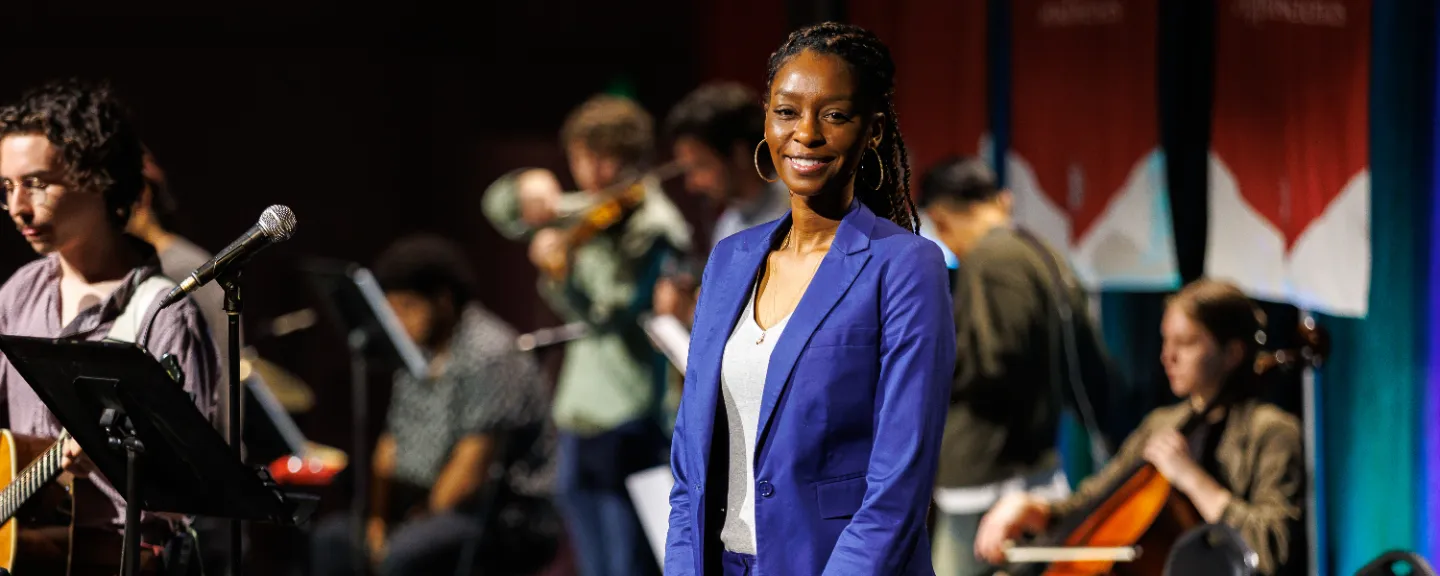- Home
- >
- APU Articles
- >
- News Article
Cultivating Transformation Through Spiritual Formation
October 25, 2023 | Written By Megan Wilhelm '23

Talented and experienced, softball was Leonard’s life growing up. At the height of her success, she often drew the letter “T” in the sand when her time came to pitch. One day, an umpire approached her, commending Leonard for drawing a cross in the sand — a moment the Lord used to convict her of pride, self-reliance, and a misplaced identity. “Softball, in a positive way, really showed me what it looks like to have a platform and to be effective and real and not hypocritical with the influence that you have,” she said. “It truly helped me realize my intentions for following Jesus. It shouldn’t just be about playing well and winning, but about worshiping your Creator and living for your Creator.”
After college, Leonard found a job working with the NBA for the Sacramento Kings. But after a few years into her work, Leonard realized she felt unfulfilled. These feelings intensified after she took a mission trip to Ghana and was reminded of her love for ministry. Upon her return back to work, Leonard sat down in her cubicle and cried. Amidst her tears, the phrase “missions every day” popped into her mind — a message she believes was from God. Although she was unsure of exactly what this would look like for her, Leonard knew it was time to move on and pursue full-time ministry. “So many doors opened once I was honest that ministry was what I was called to do,” she said. “I experienced so much joy and didn’t feel like I was wasting time because I was able to do legitimate, direct ministry.”
Now, as a pastor at APU, not only does Leonard speak at morning chapels, but she is also the lead pastor of Kaleo, a chapel with a rich tradition of teaching and open-ended worship. Though Leonard is thriving in this role, her time serving with Kaleo was first met with anxiety, questioning, and discomfort. After a tough year in her personal life, taking on a beloved chapel felt like too much responsibility. However, Leonard testifies that God was faithful to her during that time. “In my own strength I felt like I was going to completely fail when it came to Kaleo,” she said. “In that season, God completely taught me that I can’t do it in my own power. I knew early on that I couldn’t, so I leaned into God more than I ever have in my life because of what I was facing.”
Along with learning to rely more fully on God, Leonard’s first semester leading Kaleo also helped her become more comfortable with being herself. She first opened up to the Kaleo SALT team, and with time, she became more vulnerable with the rest of APU as she spoke on stage. “That first year leading Kaleo taught me to be more human. I pray this helps our students know they can be that human too,” she said.
After leading Kaleo for four years, Leonard is seeing the Holy Spirit accomplish wonderful things both in and through her. In the fall semester of 2022, the Kaleo SALT team chose the book of Ecclesiastes for Leonard to teach from — a decision she was hesitant about. Nevertheless, she trusted the Lord and her team. Weeks later, Leonard had a front row seat to all God accomplished through the book of Ecclesiastes as she and her colleagues baptized 31 students — the most she had ever witnessed during a semester at APU. She even recalled being physically sore after the baptisms. “Trusting the student discernment [on the SALT team] and then being able to see the fruit of that was life-giving,” she said.
As she continues in her work at APU, Leonard hopes students continue to grow in their relationship with Christ so that they may shine during and after their time on campus. “Success to me is knowing that APU is not only going to graduate a bunch of pastors,” she said, “But also people who will be going into secular vocational spaces where they’re going to minister and be sources of comfort and deep, long-lasting support because they’ve been shaped really well by their APU experience.”